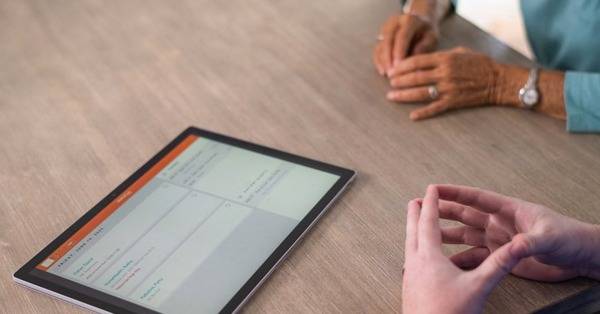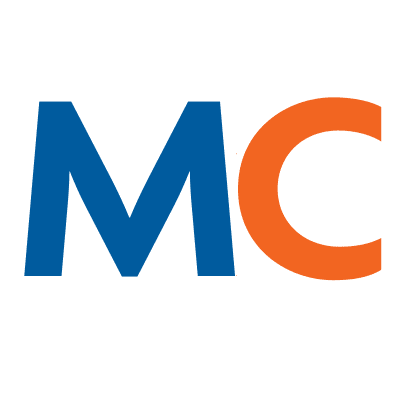- Solutions
- Solutions
- Home Health
- Hospice
- Life Plan Community
- Palliative Care
- Private Duty
- Senior Living
- Skilled Nursing
- Skilled Nursing
- Skilled Nursing Software
- Advanced Insights
- Customer relationship management
- Data and analytics
- Financial & operations management
- Marketing
- Nutrition management
- Referral management
- Regulatory compliance
- Retail management
- Resident engagement
- Revenue cycle management
- Skilled nursing interoperability
- Partners
- Blogs
- Resources
- About
- User Conference

MDS and the future of healthcare: Beyond one-size-fits-all
Come this October, the Minimum Data Set (MDS) is getting a major upgrade and will reshape how senior care is approached and administered. If you’ve looked into the changes, you’ll find a switch from a one-size-fits-all model to a personalized approach. It’s healthcare tailored to each resident’s health as well as social and cultural nuances.
Whether it’s the specific needs of dementia patients or the cultural preferences in care planning, the new MDS is looking at the bigger picture. The goal? To offer a more holistic, equitable, and personalized healthcare experience.
Navigating these updates can seem challenging. If you read our recent blog post, October 1, 2023 MDS Changes Survival Guide: The Rule of 3s, you know what you can do to prepare and manage the transition. But how exactly are these changes impacting the way care is delivered? In this blog, we’ll take a closer look at the following:

Personalized care approach
The upcoming changes to MDS mark a significant shift towards person-centered care, especially in specialized areas like dementia. Updates will include new questions focusing on social determinants of health, like economic conditions and community context. This data will help healthcare providers tailor their services more effectively.
Moreover, it’ll emphasize addressing healthcare disparities, particularly along racial and ethnic lines. It offers an innovative approach to understanding each resident’s unique needs and challenges. Doing so aims to make healthcare more equitable and impactful, elevating it from a procedural necessity to a meaningful experience. This refreshed focus promises to improve the quality of life for residents and aligns with the broader mission to humanize healthcare.
Communication and cultural sensitivity
MDS changes in October also focus on effective communication, particularly concerning language and culture. With our healthcare landscape becoming increasingly diverse, it’s not just a nice-to-have but a necessity to communicate well with residents from various backgrounds. Questions designed to assess a resident’s language preferences more comprehensively were added, which will serve as a cornerstone for individualized care plans. It ensures that all forms of communication, from medical instructions to social engagement, are clear and culturally sensitive.
Cultural considerations, previously sidelined, are now central in MDS revisions. These factors influence everything from symptom expression to receptiveness to medical advice. Staff are encouraged to become culturally competent and to use available resources and tools, like multilingual team members or advanced translation apps. The aim is to go beyond a one-size-fits-all model by recognizing the complexities of communication, thereby elevating the standard of care for all residents.
Medication management and health literacy
Also included in the updates is an elevation in medication management to a core focus area. Accurate medication lists and health literacy assessments are now mandatory, going beyond procedural changes to create a safer healthcare environment. These lists will be diligently updated at every stage of a resident’s care to prevent adverse interactions and medication errors, ensuring that all healthcare providers have aligned approaches.
Simultaneously, health literacy assessments will gauge a resident’s ability to understand medical information and manage their health. It will allow healthcare providers to adapt their communication methods to individual needs. Coupled with new strategies in medication management, such as monitoring side effects and offering non-pharmacological alternatives, the revised MDS aims to provide more personalized, safer care. It will ensure compliance and keep residents fully engaged in their healthcare, improving outcomes and quality of life.
Functional assessments for healthcare transitions
A new emphasis will be placed on assessing residents’ functional abilities within healthcare facilities and in potential home settings. This move aims to ensure seamless transitions between different healthcare environments. Assessments now go beyond physical conditions to craft a care plan based on a resident’s historical information and future needs, such as the proper use of mobility aids like wheelchairs and canes.
Key to this is the inclusion of residents’ comfort and confidence levels in using these mobility aids, which can influence their overall engagement in physical activities and health. MDS changes also include evaluating baseline care plans and setting functional goals to support transitions. This 360-degree, resident-centered approach aims to make transitions between healthcare settings smoother, thereby improving the chances for residents’ long-term well-being.
Mental well-being and social isolation
MDS updates also include tools like PHQ-2 and PHQ-9 mood assessments to gauge residents’ mental well-being, specifically targeting depression and anxiety, laying the groundwork for more comprehensive, person-centered care. These diagnostic tools help care providers dig deeper into the root causes of residents’ social isolation or emotional distress, setting the stage for tailored interventions.
In addition to diagnostics, preventive strategies will be emphasized, like fostering a community atmosphere within healthcare settings. It can also be as simple as asking residents about their daily experiences to better update personalized care plans. But by putting equal weight on emotional and social aspects of care, the updated MDS aims to combat social isolation and improve residents’ overall quality of life.
Comprehensive assessments and safety measures
As you know, Section G will be replaced with the more comprehensive Section GG, designed to assess residents’ functional limitations and future risk factors. New questions focus on mobility, range of motion, and daily living activities, allowing care providers to tailor interventions ranging from assistive devices to specialized therapies.
This shift to Section GG provides a fuller picture of residents’ abilities in daily activities and enables preemptive safety measures by identifying injury risks. The aim is proactive risk management, allowing for better resource allocation and more personalized long-term care. It enhances resident safety and aligns treatment plans more closely with individual needs.
MatrixCare can help you navigate the updates
The upcoming MDS changes focus on many critical factors, from person-centered care and medication management to cultural sensitivities and transitional care planning. They aim to improve the residents’ quality of life and make healthcare more efficient and personalized.
Getting ready for these changes can be overwhelming. However, with MatrixCare, you’re not navigating these updates alone. We’ll partner with you to help ensure a seamless integration with your existing systems. Our team is working hard to offer resources to help facilitate your transition to the new MDS protocols.
We’re prepared for a new MDS and are committed to ensuring you are too, limiting disruptions to your operations. For additional resources to help you confidently navigate the MDS updates, go to matrixcare.com/mds-changes.
Request a demo today for a closer look at MatrixCare.
See what MatrixCare can do for you
Jenny Lee
Jenny Lee is a health care regulatory expert with more than 15 years of experience. After working for the Brookings Institution and various specialty medical organizations, including ASCRS and the National PACE Association, she joined MatrixCare as its Regulatory Compliance Manager, to ensure that all its technology solutions remain compliant in the ever-changing health care market. She is excited by MatrixCare’s continuous opportunities for innovation to support patients and providers in the long-term care space.

Connie French
Connie French RN, BSN is a Lead Process Consultant for MatrixCare Skilled Nursing. She has assisted customers for ten years in implementing and training MatrixCare Skilled Nursing along with several other associated products. She brings personal Long Term Care experience along with forty years of nursing. Connie enjoys interacting with customers and planning new ways to train and use MatrixCare. When Connie is not consulting, she will either be playing with her granddaughters or walking her Boykin Spaniel.
Related Posts


See MatrixCare in action
Start by having a call with one of our experts to see our platform in action.
MatrixCare offers industry-leading software solutions. Thousands of facility-based and home-based care organizations trust us to help them improve efficiency and provide exceptional care.





